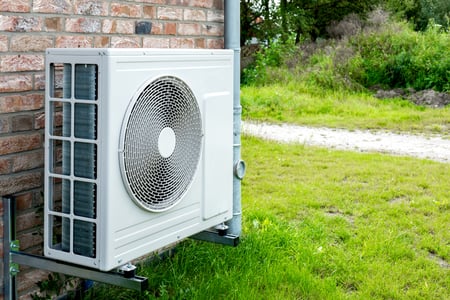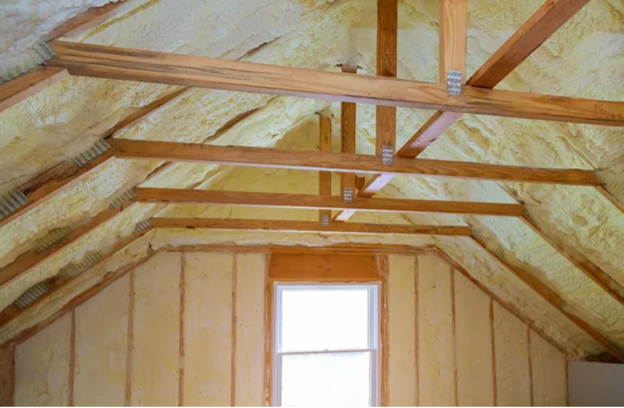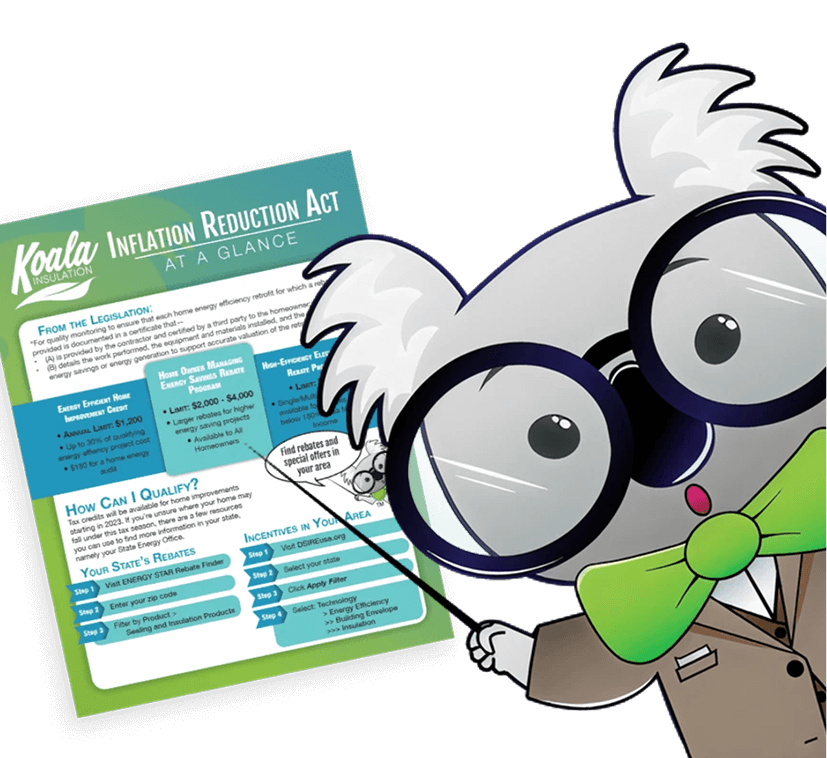
A well-designed, professionally installed home heating system will keep your family comfortable on even the chilliest winter days. There are several ways to heat your home, with innovative heat pumps and high-efficiency gas furnaces raising the bar for sustainability and savings. Check out our comparisons to find the best heating system for your property, and why insulation is critical to lowering heating costs this winter.
The Best Home Heating Systems: How Do They Stack Up?
Comparing various heat pumps and furnace fuel types can be challenging without a consistent metric to guide the comparison. The Department of Energy uses two metrics to close the gap in heating system energy ratings.
1. Annual Fuel Utilization Efficiency (AFUE) – Used to measure the efficiency of electric and gas furnaces and boilers, AFUE measures the percentage of fuel converted into heat by the system. An AFUE rating of 90% means 90% of the fuel energy is converted into heat; 10% of the fuel’s energy is wasted.
High-efficiency boilers and furnaces have an AFUE rating of 90% or higher, with the most efficient units earning scores of 98.5%.
2. Heating Seasonal Performance Factor (HSPF) – This metric is used to rate heat pumps based on their performance throughout the average heating season. This is because heat pumps can be reversed to cool homes during the summer months, which carries a different efficiency rating. HSPF ratings are a numerical scale; all heat pumps must earn a minimum rating of 8.2, with a top-end rating of 13.5.
When comparing furnaces and heat pumps, it’s useful to use a Coefficient of Performance (CoP), which measures heat output as a ratio to energy input, like AFUE.
In both cases, the higher the percentage or rating, the more efficiently the unit converts energy into heat. It’s important to note that these ratings vary widely within heating equipment categories. You can determine the specific rating by examining the unit or by contacting the manufacturer.
ENERGY STAR provides a wealth of information on heating system ratings and other considerations to make choosing a new heating system easier. Start your search with ENERGY STAR-certified boilers, furnaces, and heat pumps.
Read more: Why Smart Homeowners Invest In Energy-Efficient Insulation
What Is the Best Way to Heat a House Efficiently?
Approximately 60% of US homes use natural gas furnaces, and while they’re a good option, they may not be the best choice. Heat pumps are widely regarded as the most efficient heating systems available, and there are two primary types to choose from.
Geothermal Heat Pumps
Geothermal heat pumps, or ground-source heat pumps (GSHPs), are the most efficient heating system, with an efficiency of 300-600%. This means they provide 3 to 6 units of heat for every unit of electricity.
GSHPs work by transferring heat from the earth(relying on the ground’s steady temperature of 45-60 degrees) to warm the home. Its efficiency is derived from its method of transferring rather than creating heat. This results in very low operating costs and a long functioning lifespan. Bonus: GSHPs can cool your home during the summer months.
These systems present high upfront and installation costs, and they may not be suitable for all properties.
Air-sourced Heat Pumps
An air-sourced heat pump (ASHP) extracts heat from the air outdoors and transfers it indoors. Like GSHP, they can reverse this process in the summer to cool the property. ASHPs are 200-400% efficient, although efficiency decreases as outdoor temperatures decline.
Historically, homeowners often combined a traditional gas or electric furnace with their ASHP, switching to the stove when temperatures dipped well below freezing. Due to drastic improvements in heat pump performance in sub-freezing temperatures, this approach is no longer necessary in most regions.
Heat Pump vs. Natural Gas Furnace
Both air-sourced and ground-sourced heat pumps are more efficient than natural gas furnaces and offer some additional environmental and financial advantages:
- Heat pumps have a substantially lower carbon footprint.
- Heat pumps can heat and cool your home, effectively replacing both your furnace and air conditioning system.
- Heat pumps are eligible for many federal, state, and local tax credits and rebate programs.
Natural gas furnaces are less expensive to purchase and install than both types of heat pumps. Operating costs are usually lower for heat pumps, though local electricity rates vary. In some parts of the US, low natural gas prices make gas furnaces less expensive to operate throughout
Heat Pump vs. Electric Furnace
Heat pumps are more efficient than electric furnaces, though both run on electricity. As noted previously, heat pumps transfer heat, while electric furnaces create it. Despite its AFUE rating of 95-100%, electric furnaces cannot make something (heat) from nothing; even in the best-case scenario, they provide a one-to-one return on energy and heat production.
There’s also a price premium for electricity. In most parts of the US, electricity prices are higher than natural gas rates, which means natural gas furnaces tend to have lower operating costs, despite being less efficient. That’s a big reason why natural gas furnaces have outsold electric furnaces for so long.
The Rise of Heat Pumps in the US
After being the most popular heating option in the US for decades, natural gas furnace sales have declined. Heat pumps (GSHP and ASHP) outsold gas furnaces for the first time in 2020 and have consistently outsold gas furnaces by a growing margin since then.
Double Down on Your Comfort and Energy Efficiency
When it’s time to replace your heating system, prioritize energy efficiency and long-term savings. You can enjoy immediate energy savings with proper insulation and air sealing, amplifying our efficiency investment. Contact your local Koala Insulation to schedule a free estimate today.
Find Your Location


Get a quote






